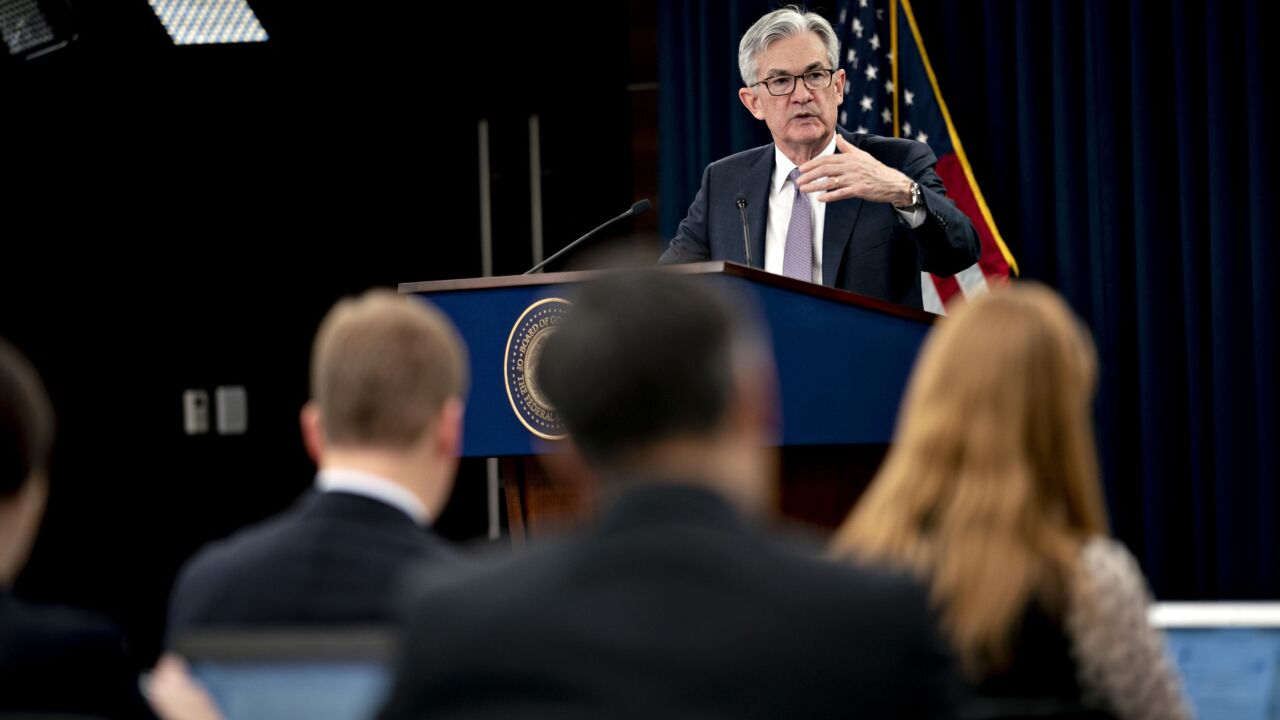Credit quality has been historically strong for credit unions, but a couple of the factors driving that — low interest rates and government stimulus checks — have disappeared and credit unions are bracing for a change.
In June, the most recent reporting period available, loan delinquencies for U.S. credit unions hit 0.42%, the lowest level in credit union history, according to a report from CUNA Mutual Group, an insurance and financial services company that monitors the credit union industry.
A level of 0.75% is considered the natural delinquency rate.
Deseret First Credit Union in West Valley City, Utah, currently has a 60-plus-day delinquency ratio of 0.15% and a net charge-off ratio of 0.10%. The $949 million-asset credit union's credit quality has benefited in part from the low employment rate.
The number of job openings were twice the number of unemployed, and the U.S. unemployment rate was 3.7% in August. Utah has one of the lowest unemployment rates in the nation at 2%.
"Week after week I look for [negative] trends in our results and they simply never occur," said Shane London, Deseret First's president and CEO.

London said he believes members have socked away stimulus funds and other post-pandemic savings that have helped them pay down loans. And people who want to work are for the most part working and so have the funds to pay their bills.
"Inflation is probably taking a bite into their available financial resources, but because the labor market has been so tight, compensation levels have been growing as well," London said. "This helps make funds available to drive low delinquency and subsequently charge-offs."
But the tide may already be turning, said John Buckley Jr., president and CEO of the $227 million-asset Gerber Federal Credit Union in Fremont, Michigan.
Buckley said the credit union has seen an uptick in delinquencies since the summer, and more members are seeking assistance as inflation erodes their balances and ability to pay on debts.
"We have a number of members who have to choose between food or gas for transportation and paying for their car," Buckley said. "The only saving grace is the weather has been temperate up to now, but we are expecting a very snowy winter, which will exacerbate the issues for those struggling."
Tim Scholten, founder and president of the credit union and community bank consultancy Visible Progress, said one of the major factors behind the strong credit quality has been that money has been cheap and easy to get. But with rising interest rates, inflation increasing and layoffs starting to occur again, the good news is likely to reverse sooner rather than later.
Scholten said credit unions will likely notice a change to their balance sheets as soon as the fourth quarter of this year.
"Delinquencies always trail these events, and charge-off increases follow in later quarters," he said. "So credit unions should continue to make high-quality loans but begin to strengthen loan standards as well as balance sheets to absorb losses that will likely begin to increase in early 2023."
Banks have been
For example, the 30-day delinquency rate for BofA was 1.38% at the end of the third quarter, up from 1.21% a year earlier, he said.
"These are decade-old lows, and we're just now seeing gradual moves off these lows in early-stage delinquencies. Late-stage delinquencies are still 40% below pre-pandemic levels," Moynihan said.
Many banks and credit unions put a lot of money into their allowances for bad debt that they are now taking back as income because the losses were not as bad as expected, said Matt Selke, president and CEO of the $96 million-asset Pinnacle Credit Union in Atlanta.
Delinquencies and charge-offs are still low because of the stimulus funds that remain in the system and some of the COVID-related deferments, but those should be expiring soon, he said.
"As we are seeing with inflation, the amount of stimulus pumped into the system was probably more than what was needed, though I am sure nobody in politics wants to talk about it," Selke said.
Pinnacle is preparing for much higher delinquency in 2023, especially if a recession materializes and leads to higher unemployment, Selke said.
Layoffs are beginning to pop up nationwide a bit more frequently, which could result in an uptick in late loan payments, said London at Deseret First. A prolonged recession and federal reserve action could push unemployment numbers up, but with such a tight labor market it is challenging to know what, if any, impact it will really have on delinquencies, he said.
"But it is interesting that even in an elevated interest rate environment we can't really shut off loan growth," he said. "People still want their new cars and HELOCs."






